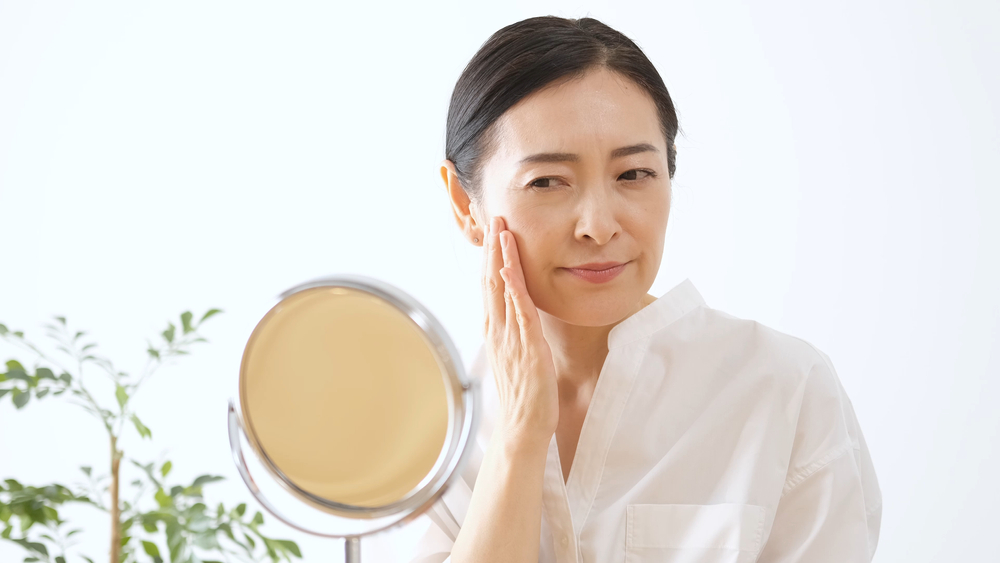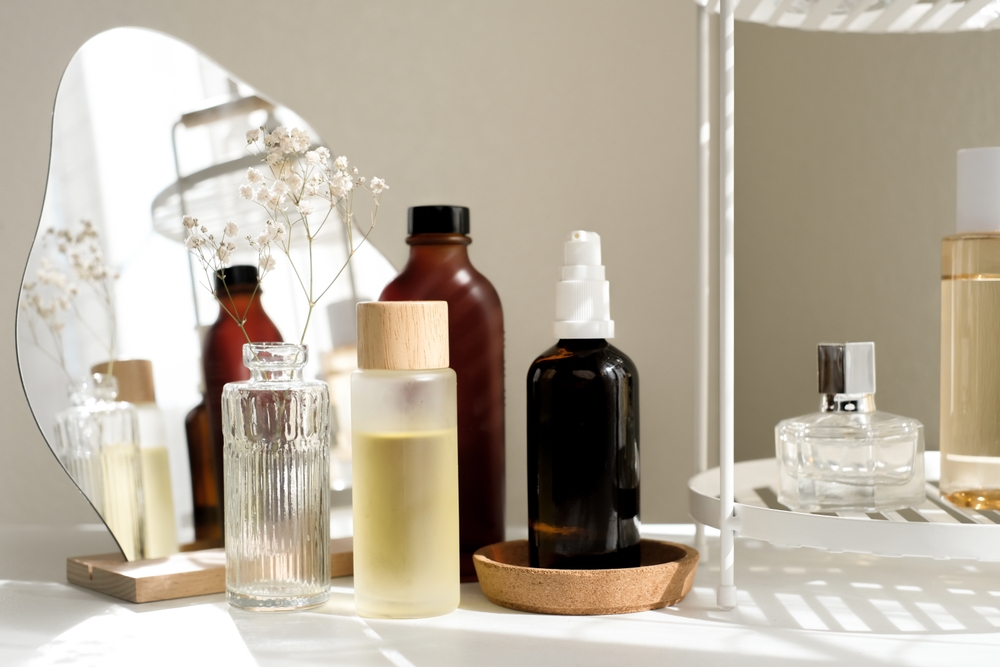In our age-old quest for timeless beauty, the world of skincare has seen remarkable advancements. But do these products truly turn back the clock on ageing? Join us as we delve into the world of anti-ageing with Dr Ch’ng Chin Chwen, Consultant Dermatologist at Subang Jaya Medical Centre, to uncover the secrets, science, and scepticism behind this billion-dollar industry.

1Twenty80: What are the key factors that contribute to skin ageing?
Dr Ch’ng: We Asians have a genetic advantage over our Caucasian counterparts in that we age slightly slower. As a result, most Asians’ skin ageing is caused by external factors.
Environmental exposure, including UV sun rays, pollution, smoking, and so on are among the extrinsic variables that are thought to account for 90% of skin ageing, whereas intrinsic factors such as oxidative stress and genetics may account for 10%.
1Twenty80: How do active ingredients like retinoid, hyaluronic acid and its counterparts work to combat signs of ageing?
Dr Ch’ng: Retinoids are vitamin A derivatives that promote skin cell turnover. We frequently use it with teenagers to help them get rid of acne. It also preserves collagen and minimises pigmentation and wrinkles.
Hyaluronic acid acts as a moisturiser, giving your skin a plump appearance. There are several peptides and substances that act together to treat pigmentation and fine wrinkles while also promoting youthful and vibrant skin.
- Retinols (Derivative of Vitamin A) – Increases skin cell turnover
- Ascorbic acid (Vitamin C) – Improves appearance of wrinkles and dark spots
- Niacinamide – Boosts hydration & brightens and fades hyperpigmentation
- Bakuchio – Soothes the skin and minimises issues associated with sensitivity and reactivity
- Azelaic acid – Helps with hyperpigmentation and acne
- Hyaluronic acid – Hydrates dry and ageing skin
1Twenty80: How important is sunscreen in an anti-ageing skincare routine, especially under Malaysian weather?
Dr Ch’ng: The Sun Protection Factor (SPF) of a product indicates the amount of protection against UVB radiation. According to the chart, SPF 30 provides 97% protection for your skin, while SPF 60 provides 98% protection. Thus, while an SPF of 60 may appear to be “twice as good” as an SPF of 30, it only gives 1% more protection. SPF 100 and higher sunscreen ratings are marketing tactics to confuse consumers.
If you have acne problems, you might want to look for a product that is non-comedogenic.
No sunscreen can completely filter UV rays. In reality, an SPF of 100 or higher allows 1% of sunlight to pass through. As a result, SPF 30 is adequate. It’s a good idea to shield yourself from the sun by covering yourself with clothing, wide-brimmed hats, and seeking shade.
Many people refrain from applying a thick amount of sunscreen for fear of the white cast some sunscreen products leave behind. Most of us are also not reapplying sunscreen in the middle of the day.

UVA vs. UVB
UVA Rays
UVA rays penetrate deep into the skin and cause ‘photoaging’, including wrinkles, dark spots, rough patches, discolouration, dehydration, and more.
UVB Rays
UVB rays have shorter wavelengths than UVA rays. They burn the surface of the skin and can lead to skin cancer.

1Twenty80: What should consumers look for when choosing effective anti-ageing skincare products?
Dr Ch’ng: If you have acne problems, you might want to look for a product that is non-comedogenic. If you have sensitive skin, you would want to make sure you’re not allergic to the ingredients in your skincare products. Some marine life lovers are quite worried about environmental issues. If you are very concerned about being environmentally friendly, choose sunscreens that have large molecules so as not to penetrate corals and algae.
If you’re concerned about the affordability of skincare products, It’s always good to get products that aren’t costly and that you can use generously.
1Twenty80: How can dermatologists help patients implement effective anti-ageing skincare routines?
Dr Ch’ng: When you visit a dermatologist, we will inspect your skin and discuss the key areas of concern with you. We can also talk about appropriate skin care products and procedures. You can come to us at any age if you’re concerned about ageing skin, acne, or other skin conditions.














